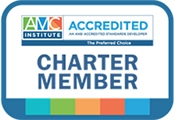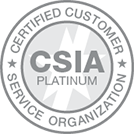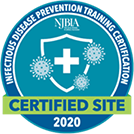I recently viewed a webinar hosted by Harbor Compliance & Salsa Labs entitled, “Charitable Solicitation, What Does It Take to Be Compliant?” The webinar instructor, Brock Klinger, reviewed five key areas every association should know about charitable solicitation. The following summary outlines these areas and provides important information every association should be aware of if they are engaged in charitable solicitation.
First, it’s important to understand what is meant by charitable solicitation. Simply put, solicitation is the act of asking for donations. Requirements are based on the act of soliciting regardless of whether or not actual donations are received. Common forms of solicitation include fundraising events, direct mail, phone calls, applying for grants, games of chance and online fundraising such as a donate button on your association’s website.
- State registration requirements
According to the IRS, “Many states have laws regulating the solicitation of funds for charitable purposes. These statutes generally require organizations to register with a state agency before soliciting the state’s residents for contributions, providing exemptions from registration for certain categories of organizations.” Currently, 41 states require charitable solicitation registration. It’s important to know where you are soliciting and to research the requirements for those states.
- Online fundraising
![]()
Many associations have a “donate” button on their website. A common question is whether those organizations must register in one or more states to meet charitable registration requirements. Fundraising online is generally considered soliciting nationwide because donate buttons on a website or in an online newsletter can potentially reach individuals in every state.
Further, if your association receives a donation through your website and you ask the donor to donate again in the future, this can also be construed as active solicitation. Options to consider when conducting online fundraising could be to register or file an exemption in all 41 states or to not accept online contributions from individuals in states where your association is not registered.
- Why compliance should be a priority
Associations may think that because they receive very few donations or have been fundraising a long time without being registered, that not being compliant is no big deal. However, state charity regulators are becoming more stringent in ensuring compliance. As an example, the webinar highlighted that the state of California holds nonprofit board members personally responsible for any penalties levied for failure to register.
Other potential consequences of failure to register could include state fines and penalties, bad public relations for your association, loss of state recognition of tax exemption and revocation of the right to solicit. Proactive registration is an ideal way to avoid these types of issues. It also gives donors reassurance that the organizations they are giving to are following the law.
- What it takes to register, including the costs

As a rule of thumb, associations engaged in charitable solicitation should treat registration requirements just like they would their association’s 990 filings and other annual tasks that need to be maintained and budgeted for each year. Associations should ensure that their board members understand registration requirements so that they understand the importance of compliance and can plan accordingly.
There are four main steps your association will need to take to register: research, apply, monitor and renew. Your association will need to research your current registration status, application forms, fees and documents along with other state requirements. Once your research is complete, you will need to apply. Application processing timelines vary by state and your association will need to monitor that the application is approved. Lastly, your association will need to track renewal dates and file renewal applications.
Registration filing fees vary widely by state and are often based upon the association’s revenue. According to the webinar, associations that need to register nationally could incur filing fees anywhere between $1,400 to $5,000, for most organizations, based upon their revenue.
- How to manage registrations and simplify the process
The process of researching registration requirements, filing and ensuring registration is renewed each year can take significant staff time. Firms such as Harbor Compliance offer compliance expertise and services to fully manage the registration process including tracking software for reporting to ensure associations are compliant and are meeting registration renewal deadlines.
Regardless of whether your association hires a third-party firm or handles charitable registration internally, it is very important that you understand charitable solicitation registration requirements for your association, educate your board members on this topic and work toward proactive registration to avoid putting the association at risk.




